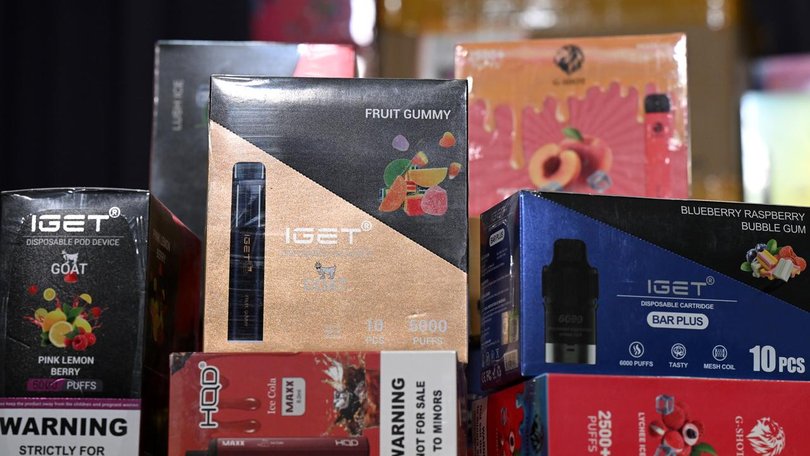Vape shops vanishing but illegal sales persist
A study has found dozens of specialist vape retailers have closed after tough laws restricting sales, but the harmful product remains available illegally.

Vape shops have all but disappeared in one state, but that doesn’t mean people are not buying them elsewhere, warns a public health expert says.
Dedicated vape stores have vanished in Western Australia after tough laws restricting sales to pharmacies came into effect last year, a University of Notre Dame Australia study has found.
But disposable versions of electronic cigarettes are still being sold online and under the counter at many convenience stores across the country.
Sign up to The Nightly's newsletters.
Get the first look at the digital newspaper, curated daily stories and breaking headlines delivered to your inbox.
By continuing you agree to our Terms and Privacy Policy.“It’s good to see clear evidence in one state where a lot of these bricks and mortar setups are being shut down,” Terry Slevin, chief executive if the Public Health Association of Australia, told AAP on Wednesday.
“But that doesn’t mean that vapes have disappeared - they still appear in most towns and cities in convenience stores and people can still get them online.”
“There’s no magic bullet, it doesn’t matter what the substance is, if there’s a market for it people are going to find a way of buying it.”
Researchers found that of 194 specialist vape retailers, 117 had closed in WA after the national legislation was introduced.
A further 76 shops, which previously sold vapes, had moved on from vape sales and no longer appeared to be selling them.
“These stores were all-too common in our local communities,” public health expert Lisa Wood said.
“They were often located near schools and openly advertised vape products to passers-by, with enticing windows displays and appealing flavours contributing to the normalisation of vaping amongst young people.”
The study also found that 11 Perth convenience stores were illegally selling vape products under-the-counter months after the new laws were enacted.
“Anecdotally we have also heard about convenience stores elsewhere in Australia selling vapes – it is an anathema to associate convenience with a product that is illegal to sell and harmful to health,” researcher Angela Gazey said.
Preofessor Slevin said it wasn’t suprising convenience stores continued to sell vapes illegally.
“This sector has a long history of undermining community health efforts, putting profits first. Illegal convenience store vape sales are happening across the country,” he said.
“Vapes are dangerous and their ingredients should not be inhaled into young lungs.”
Vape marketing, often on social media platforms and in collaboration influencers, emphasised taste, sociability, and perceived reduced harm compared to traditional cigarettes before it became illegal.
The study was published in the Australian and New Zealand Journal of Public Health.
